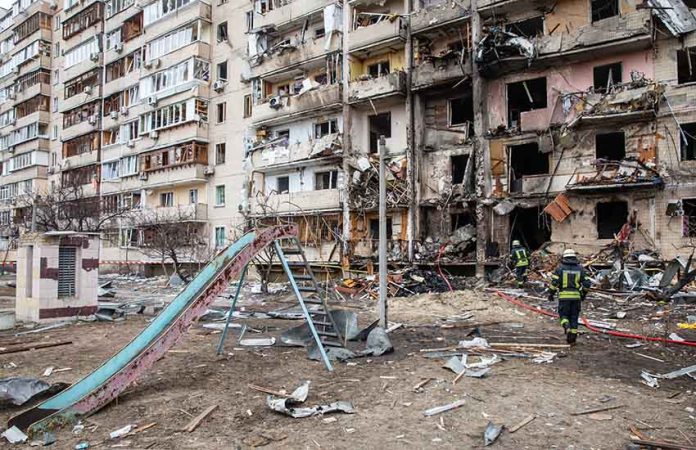When I have dreams of war, for whatever reason, they are never of world wars.
When I dream of war, I always dream of war between neighbors, between brothers and sisters, civil wars.
When I dream of war, I dream of more intimate conflicts. I dream of the wars I most fear: of the revolutions fought by France, the United States, Mexico, Russia, India and Cuba. I dream of civil wars between the Chinese or the Vietnamese; between Tutsis and Hutus in Rwanda; in Yugoslavia, in Iran, in Syria, in Nicaragua, in Colombia.
When I dream of war, I dream of poems about internecine wars, wars within a group: Homer’s Iliad, Li Po’s Nefarious War, Pablo Neruda’s To all of you… (A todos vosotros…) and Rubén Darío’s ¡Pax!…
When I dream of war, I dream of the bombardment of Guernica on April 26, 85 years ago — the event represented in Pablo Picasso’s painful portrait of the Spanish Civil War.

It’s the same war about which poet Miguel Hernández (assassinated by dictator Francisco Franco’s military when he was just 31 years old) sang: “Sad wars, if the end isn’t love. Sad, sad. Sad weapons if they aren’t the words. Sad, sad. Sad men if they aren’t dying of love. Sad, sad.”
When I dream of war, I dream of tormented open mouths and sharp-edged tongues of men, women, bulls and horses that bite themselves while screaming in pain. I dream of a mother and her dead son thrown onto an empty street. When I dream of war, I live Picasso’s Guernica. I dream of the remains of arms and forearms — disjointed and abandoned hands and legs that cling to the broken sword and the defenseless but living flower.
I dream of the painting’s agonizing horse and of the woman who grabs the lamp with her right hand. I dream of the barefoot and of the fallen. I dream of the dove of peace with the defeated wing and the open beak. I dream of brutality and darkness, of flames and fire, of the fallen knee, of the woman’s full breasts that will not feed any child.
I dream of the sun’s shimmering light that from the sky stares at everything — while in the distance, the arrows creep closer.
And this is when I am awakened by nightmares of my beloved Colombia and Mexico being torn apart by the unbearable pain of the hundreds of thousands of dead — the dead that raging violence and our bad rulers of today and yesterday make us carry on our collective shoulders.
This is why, when I dream of war, I dream of wars of fratricide. I dream of civil wars that strip off, exacerbate and reproduce the primordial challenges that haunt a society in desperate need of peace — challenges like poverty, inequity, insurrections, coups d’état, repression, violence, misery, death and rancor, the nauseating vomit that polarization breeds among compatriots.
These wars I fear the most. These wars frighten me, sadden me, keep me awake, make me fear for my children and yours. Those are Miguel Hernández’s sad wars of sad weapons and sad dead.
When I see the heartbreaking images of suffering that the brutal Russian invasion is bringing to Ukraine, I am flooded by memories from my first Russian books about war: Boris Pasternak’s Doctor Zhivago and Aleksandr Solzhenitsyn’s A Day in the Life of Ivan Denisovich.
“A state of war only serves as an excuse for domestic tyranny,” Solzhenitsyn said in his book, The Gulag Archipelago, his words from years ago still echoing truth today.
And then, I can no longer sleep. I cannot stop seeing the blood flow, the fleeing, crying wives carrying in their arms the broken orphans — the orphans of fathers who took a gun and stayed behind to fight and die for their homeland in Ukraine.
I cannot stop seeing burning homes and bombed cities, children and pregnant women left to their fate on the streets. I cannot stop seeing the faces of the millions of refugees abandoning their homeland to save their lives but leaving behind everything else.
I then close my eyes and daydream, wishing that Vladimir Putin and his war criminal accomplices would vanish as the sounds of Kyiv’s air raid sirens fade away.
Omar Vidal, a scientist, was a university professor in Mexico, is a former senior officer at the UN Environment Program and the former director-general of the World Wildlife Fund-Mexico.
